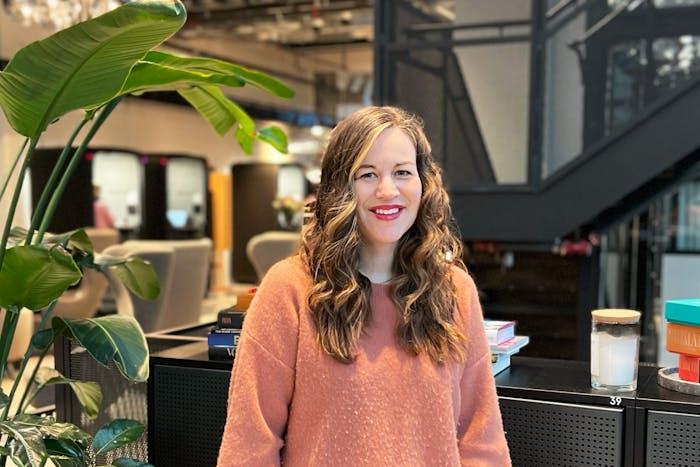How to Ensure a Fair Distribution of the Cost of Human Rights Due Diligence
Leanne Melnyk, Head of Impact and Partnerships, shares learnings from OECD - OCDE Forum on Due Diligence in the Garment and Footwear Sector.
Leanne Melnyk
Head of Impact and Partnerships, Quizrr
Last week I had the pleasure to attend the OECD - OCDE Forum on Due Diligence in the Garment and Footwear Sector with my amazing Quizrr colleagues Annika Garubo and Sara Rhodes. There were a lot of great speakers including Michael Bride, Senior Vice President, Corporate Responsibility, Global Affairs at PVH Corp who spoke about cost-sharing models for human rights due diligence (HRDD) along the supply chain. Bride's use of real-life examples, showing how brands can take the high-road and still come out on top - was inspiration for myself and no doubt, many others in the audience.
His first point was that building collective leverage amongst brands and being transparent about who covers what costs, are key to success. He referenced the Bangladesh ACCORD (now the RMG Sustainability Council) where participating brands contributed 70M USD, to cover safety auditing costs. Suppliers were responsible for remediation with financial assistance available where needed. What makes this model unique is that it takes a shared approach to managing the cost of HRDD – with a wider group of brands pooling resources but also harnessing their collective leverage to ensure the participation of suppliers.
Bride's use of real-life examples, showing how brands can take the high-road and still come out on top - was inspiration for myself and no doubt, many others in the audience.
Leanne Melnyk
Head of Impact and Partnerships, Quizrr
Bride then spoke about how it’s important to be authentic and “live your values” even when you are alone in doing so. He spoke about how PVH and its licensee Centric, made a recent payout of 1M USD after 1,100 garment workers were left destitute by the closure of the Val d’Or garment factory in Haiti. This was an example where the costs of HRDD were not being fairly distributed along the supply chain – where the factory owners had absconded and where no other international brands were identified. Despite the fact that PVH was only tangentially linked to the facility, with Centric having less than 1% of production in the facility, the company still ensured workers were compensated. They did this because “it was the right thing to do” and doing otherwise would have run counter to their values as a responsible business.
Bride cautioned however that the days of brand supremacy were coming to an end and that fashion is becoming a regulated space. Brands need to recognize that by not putting in the work upfront and creating shared models of responsibility and trust along the supply chain, it creates both business and regulatory risk. This will require a shifting of mindsets from one that focusses on ensuring zero-risk for business to one that puts people at the centre.
Brands need to recognize that by not putting in the work upfront and creating shared models of responsibility and trust along the supply chain, it creates both business and regulatory risk.
Leanne Melnyk
Head of Impact and Partnerships, Quizrr
Bride also shared how sectoral-wide collective bargaining agreements and collaboration with sectoral trade unions like IndustriALL can help forge new models of governance for the industry. He shared the “almost” success story of Ethiopia where brands, unions, and employer organizations through the help of ILO and Better Work, came very close to negotiating a sectoral collective bargaining agreement that would have laid out a framework for shared cost and responsibility while addressing decent work deficits. He said that the CBA would have recognized the important influencing role of the brand in the employment relationship between the supplier and employee. This would address the current gap where the brand is “the power in the room that isn’t sitting at the table.” He cautioned that while brands may find it challenging to move from a position of direct control to one of “pooled sovereignty” and sometimes “messy compromise", arguably it’s the only path towards a more equitable model of sharing the costs of responsible business practices.
The question of course, is how do we replicate the PVH “best practice example” so that they are not the outlier but the norm? How do we make sure that when the next factory folds that all businesses sourcing from the factory, rather than just one, stand up to do the right thing? Bride pointed to the need to create stronger financial incentives for companies. These include working with investors to ensure that companies are not penalized if, in the short term, their margins get smaller from acting responsibly.
I’m staying “true to my values” by working with some of the best brands and retailers in the garment industry through Quizrr, using gamified learning to educate managers and workers along the supply chain.
Leanne Melnyk
Head of Impact and Partnerships, Quizrr
Sadly its now a whole year until the next conference – but with Bride's insights - and those from other heavy hitters like Christina Hajagos-Clausen of IndustriALL, Nazma Akter from Awaj Foundation and Vicky Bowman from the Myanmar Centre for Responsible Business, there is more than enough to fill my mind with fresh ideas. In the meantime, I’m staying “true to my values” by working with some of the best brands and retailers in the garment industry through Quizrr, using gamified learning to educate managers and workers along the supply chain. With knowledge as the great equalizer – ensuring we all have a shared understanding on respect for human and labour rights, it will make it that much easier to help move towards a shared responsibility for the benefits and costs of responsible business conduct.



